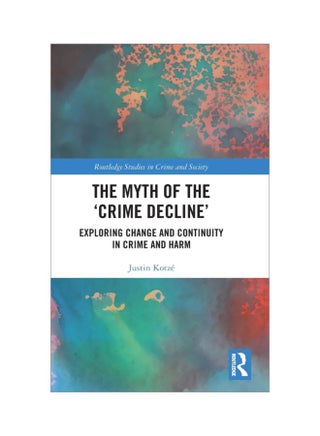| المراجعة التحريرية | "Kotze theoretically and rigorously skewers the myth of the 'crime decline' as a 'baseless assertion built on insufficient data'. In doing so he punctures liberal, dream-like notions of 'better angels of our nature' exercising some mystical and ameliorating influence on the harm that is still so catastrophically caused by our underlying social and economic system and the toxic subjectivity that it creates. Beautifully written and intellectually challenging, it also serves to remind every Criminologist of the debt that we now and will continue to owe to Ultra Realism for re-invigorating a discipline that was theoretically atrophied."
Professor Emeritus David Wilson, Centre for Applied Criminology, Birmingham City University.
"Justin Kotze does what few criminologists are willing to do these days. He pushes past the cloying sensitivities of contemporary social science to offer an admirably honest account of the genuine problems that continue to blight our most impoverished and disorderly boroughs... he carefully and convincingly dismantles the crime decline narrative. Compelling stuff."
Professor Simon Winlow, Northumbria University
In The Myth of the Crime Decline, Justin Kotze carefully unpicks one of the predominant narratives of mainstream criminology. Using cutting edge social theory and original data, this book demands that we move beyond positivism or constructionism as explanatory frameworks for our contemporary condition and examine the complexity of a criminological reality that is far from static. Kotze draws us into a rapidly changing criminological landscape, illustrating how adaptive and new forms of crime are facilitated by technological advances, rendering the creaking mechanisms of crime surveys and many categories of crime and deviance obsolete. Beneath the statistical radar, and against a backdrop of socioeconomic precarity, these new forms of criminality are often entrepreneurial, ruthless and effective, resulting in a range of invisible and unmeasured harms. This book is essential reading, and an antidote to the orthodoxy of optimism that has paralysed the social sciences in recent years.
Dr Oliver Smith, Reader in Criminology, Plymouth University |
استرجاع مجاني وسهل
أفضل العروض

